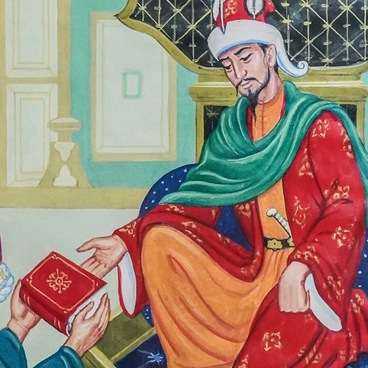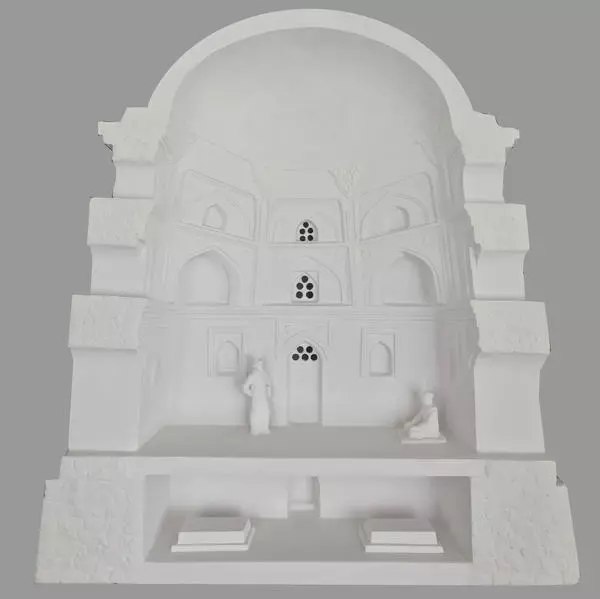After the Kazan Khanate resigned itself to Moscow, many Tatars changed their nomadic way of life to a sedentary one, began to erect houses, engage in agriculture, and raise cattle. The first settlements appeared, where people lived in communities. They were led by Abyzes - the most educated, experienced and wise men. As a rule, these were elderly persons, who were turned to for advice. Community management decisions were made at general meetings of Aqsaqals - the most experienced and respected elders. But the last word always remained with Abyz.
It is generally assumed that Abyz is a person who has a profound knowledge of the Quran and is able to correctly interpret it. In fact, Abyz could be a person who did not know not read and write, but had life experience and could make the right decision in a difficult situation. Such a person, as a rule, really quoted particular lines from the Quran from memory, was distinguished by spiritual maturity, purity, and righteousness. In the Tatar settlements isolated from the outside world, over time, Abyzes turned into representatives of the local authorities, who resolved disputes, made decisions important for the community, maintained order and provided a pillar of spiritual support. Not many were honoured to be Abyz, and this title obliged to constantly improve, to be an example to others.
The basis of the spiritual life of sedentary Tatars was Islam, the Quranic commandments were passed down from generation to generation, and Abyzes were their main guardians. This word has one more meaning - a teacher. Therefore, Abyz, as a rule, assumed responsibility for the spiritual education and enlightenment of the younger generation. Reading religious books with adolescents was his duty; Abyz instilled in children a love of books and knowledge. The attitude to a book in the Tatar settlements was as respectful as to the bread.
The installation Abyz and His Student recreates the atmosphere of such classes - relaxed, friendly. The interior of the rural hut is not luxurious, but on the wall is a shamail - a calligraphic panel that is considered part of the national culture of Tatarstan. On the shelf is a hunk of bread, carefully covered with a cloth.
It is generally assumed that Abyz is a person who has a profound knowledge of the Quran and is able to correctly interpret it. In fact, Abyz could be a person who did not know not read and write, but had life experience and could make the right decision in a difficult situation. Such a person, as a rule, really quoted particular lines from the Quran from memory, was distinguished by spiritual maturity, purity, and righteousness. In the Tatar settlements isolated from the outside world, over time, Abyzes turned into representatives of the local authorities, who resolved disputes, made decisions important for the community, maintained order and provided a pillar of spiritual support. Not many were honoured to be Abyz, and this title obliged to constantly improve, to be an example to others.
The basis of the spiritual life of sedentary Tatars was Islam, the Quranic commandments were passed down from generation to generation, and Abyzes were their main guardians. This word has one more meaning - a teacher. Therefore, Abyz, as a rule, assumed responsibility for the spiritual education and enlightenment of the younger generation. Reading religious books with adolescents was his duty; Abyz instilled in children a love of books and knowledge. The attitude to a book in the Tatar settlements was as respectful as to the bread.
The installation Abyz and His Student recreates the atmosphere of such classes - relaxed, friendly. The interior of the rural hut is not luxurious, but on the wall is a shamail - a calligraphic panel that is considered part of the national culture of Tatarstan. On the shelf is a hunk of bread, carefully covered with a cloth.
Perhaps this is the future dinner of Abyz and his student, which they will share equally. Such home schooling was the basis of the educational system of Muslims, knowledge was transferred from Abyz to a student during a leisurely conversation, which was held on an equal footing.

